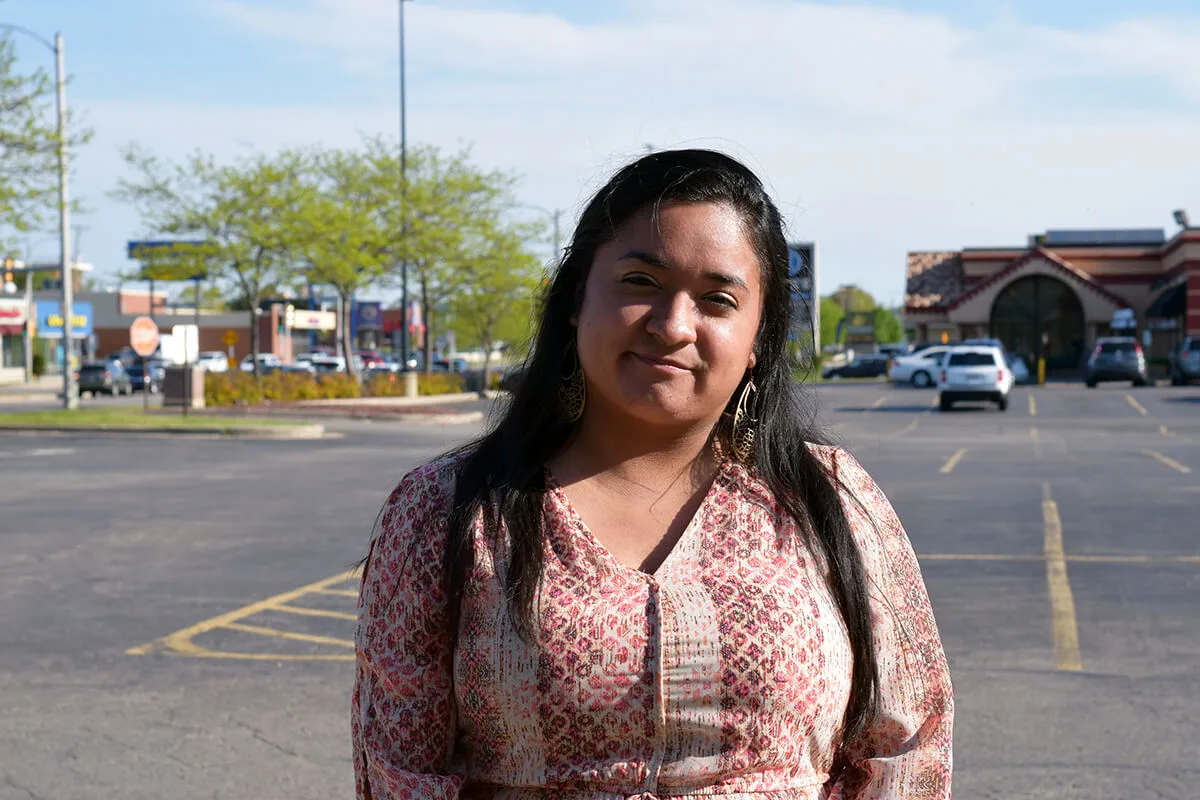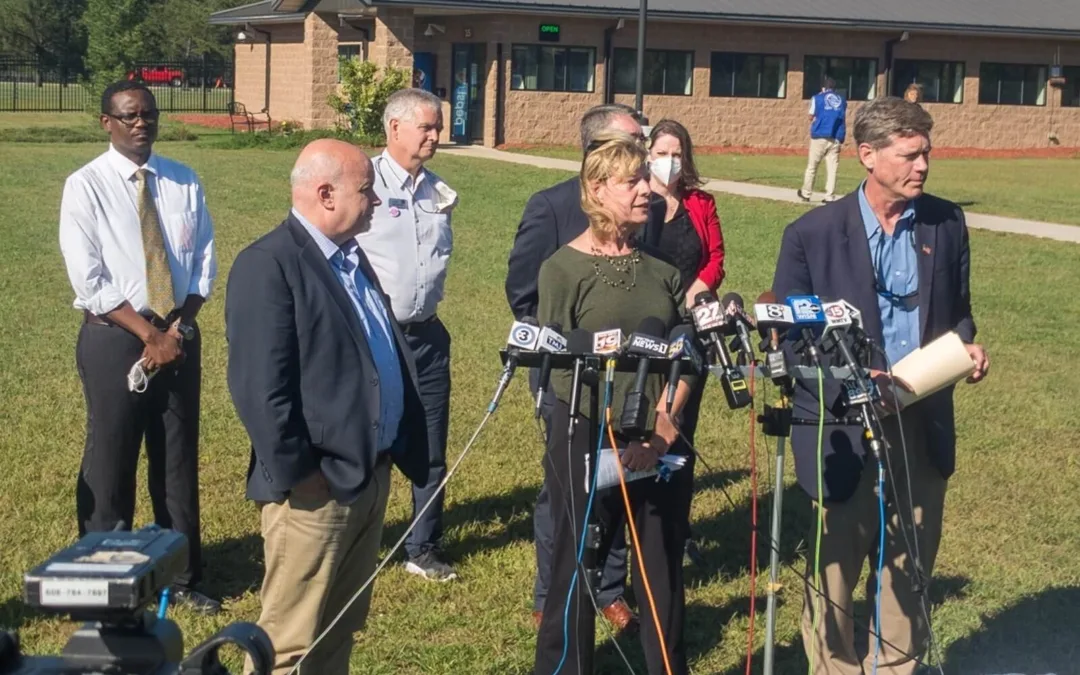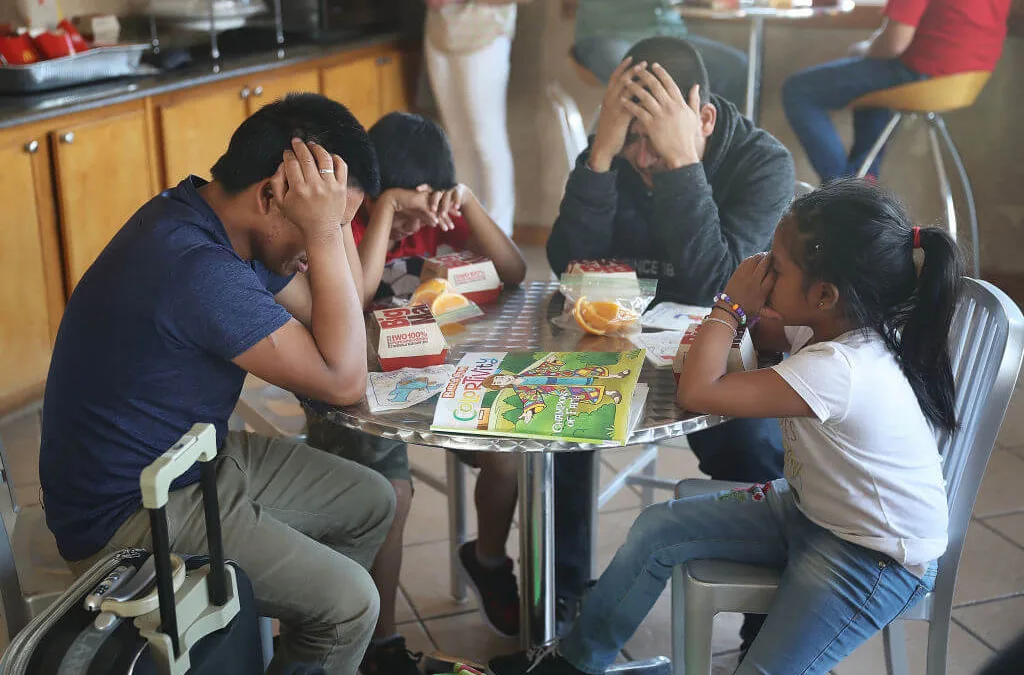
#image_title
About 75,000 undocumented immigrants live in Wisconsin, many working “essential” jobs that put them at high risk of COVID-19. The best way to reward them, advocates say, is with a path to citizenship.
Much like the rest of the nation, Alondra Garcia has spent the pandemic not quite knowing what’s coming next.
The bilingual elementary school teacher from Milwaukee has had to contend with adjusting to virtual learning, a bout with COVID-19, and now a return to in-person schooling under Milwaukee Public Schools’ strict pandemic safety regulations. All the while, she was doing her best to teach the next generation.
“It was very exhausting,” Garcia said.
But Garcia had another set of uncertainties looming: She is a recipient of Deferred Action for Childhood Arrivals (DACA), the Obama-era program that protects from deportation and provides a work permit to undocumented immigrants brought to the United States as children.
While DACA recipients like Garcia avoided the worst-case scenario—a wholesale dismantling of the program after repeated attempts by former President Donald Trump—they are still waiting for President Joe Biden and Democrats in Congress to fulfill their 2020 campaign promises of immigration reform and a path to citizenship for 11 million undocumented immigrants.
More than 6,500 DACA recipients and 70,000 other undocumented immigrants live in Wisconsin, according to figures from the American Immigration Council. Many of them spent the last 14 months working in essential jobs—like meatpacking—that put them at high risk of contracting and dying from COVID-19.
Now, advocates say, it’s time for those workers to get rewarded with a clear path to citizenship.
“You know what? It’s about time we give this recognition that they have through this pandemic put the food on America’s table,” said Tony Gonzalez, director of the American Hispanic Association in Wausau.
Three bills currently before Congress would provide that reward and deliver on Democrats’ promised reforms.
Throughout the first months of Biden’s term, Voces de la Frontera Action, an immigrant and workers rights group based in Milwaukee, held marches and protests throughout Wisconsin advocating for the bills and pressuring Democrats to either pass them or roll them into a larger package that could be passed through budget reconciliation, a process that requires only a simple Senate majority vote rather than the 60 votes needed to overcome a likely Republican filibuster.
The White House is opposed to using budget reconciliation for immigration reform, saying it would prefer a bipartisan solution. But Christine Neumann-Ortiz, executive director of Voces de la Frontera, said she isn’t holding out for Republican support.
“We don’t believe there is hope for bipartisanship,” Neumann-Ortiz said. “So our push is on Democrats.”
Key to that push is Democratic Wisconsin Sen. Tammy Baldwin, Neumann-Ortiz said, due to her relative seniority and leadership position as Senate Democrats’ caucus secretary. Following a Voces de la Frontera event Thursday at the state Capitol, Baldwin released a statement through the group reiterating her support for immigration reform “using whatever legislative path we can, including the budget reconciliation process.”
Democrats “have power now, and they need to wield it,” Neumann-Ortiz said.
Garcia, who is involved with Voces de la Frontera and recently joined the group in a demonstration in Washington, DC, echoed that sentiment and warned Democrats may lose Latino support and enthusiasm if they don’t deliver.
“If we don’t do something about it this year, I feel like people are gonna lose motivation, lose that optimism, lose that want to actually think it’s going to be possible,” Garcia said.
Gonzalez lives and organizes within the heavily Republican 7th Congressional District currently represented by US Rep. Tom Tiffany, whose newsletters and press releases frequently invoke negative images of “illegal aliens.” Still, Gonzalez said, he’s not giving up on the hope for wider support.
“I propose just to bring people to the table and have a conversation, and have a real, good, robust conversation,” Gonzalez said. “No fights, no finger-pointing—more, ‘Let’s lay the ground of what’s common, and how do we find solutions?’”

Wisconsin dairy industry to take big hit under Trump’s deportations
Behind the title of “America’s Dairyland” is a workforce comprised of migrant workers. Experts say without them, the dairy industry could collapse....

Editorial: Would you prefer a bipartisan deal that increases border security—or no deal and just a lot of talk from now ‘til Election Day?
Trump says the quiet part out loud and US Rep. Derrick Van Orden says he wants no part of a bipartisan deal. [Editor's Note: This editorial was...

Vaccinations and Vetting Going Smoothly for Afghan Allies Being Staged at Fort McCoy
Group of Democrats from Congress and the Legislature: “We can pay them back now” for supporting US troops in harm’s way. A Democratic delegation...

545 Undocumented Children Are Orphans Because of Trump
The missing parents are from Trump’s 2017 pilot program to separate families at the border. A lawsuit against the US Department of Justice...




